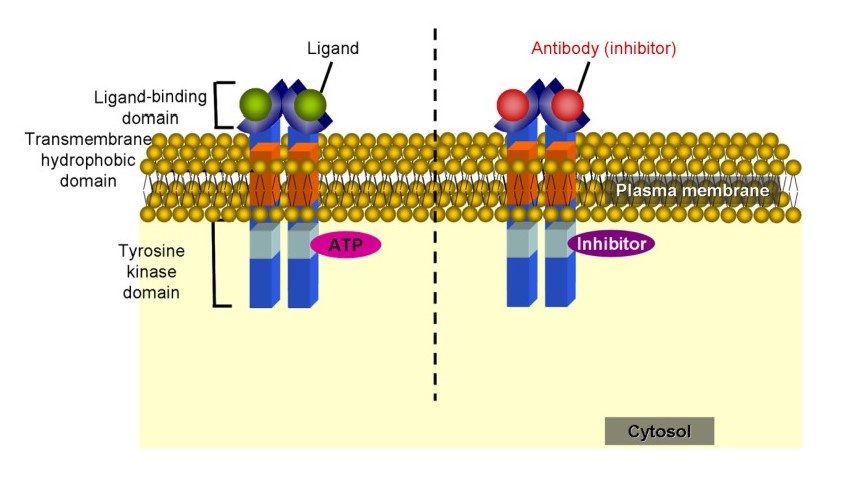Playlist
Show Playlist
Hide Playlist
Cancer Immunotherapy
-
Slides CP Effects of Cancer Therapy.pdf
-
Reference List Pathology.pdf
-
Download Lecture Overview
00:01 There are effects related to immunotherapy. 00:04 So shown on the left hand side is a squamous cell carcinoma. 00:08 The large cells in the right hand side of that panel, that's the cancer. 00:12 The smaller round blue cells that are seem to be invading into the cancer, that's an impressive lymphocyte immune response to the tumor. 00:22 All those are cytotoxic T-lymphocytes, helper T-cells, and there's also a population of macrophages. 00:30 You can see that those cells have a very prominent CD8 killer T-cell population by the immunohistochemistry, shown on the right. 00:38 All of the brown cells represent killer T-cells that are going after the tumor, which are the larger kind of blue cells that you see on the right hand side of that panel. 00:50 We can give therapies that will increase the ability of the host immune system to go after tumor, but we're taking the break off the immune response to do that, so you can have autoimmune disease. 01:05 Here's a patient who was getting checkpoint inhibitors. 01:08 These are the inhibitors that are basically set loose the immune system to go after tumor. 01:16 In this patient, there were without any knowledge on our part, there were previously circulating cells that had some reactivity against cardiac myocytes. 01:28 Oops, now we've taken the break off the immune response. 01:31 When that happens, this patient developed a fatal myocarditis. 01:35 So it was an appropriate therapy, actually quite effective against the tumor, but elicited a secondary autoimmune phenomena and the patient died of myocarditis.
About the Lecture
The lecture Cancer Immunotherapy by Richard Mitchell, MD, PhD is from the course Cancer Morbidity and Mortality.
Included Quiz Questions
What could be a complication of cancer immunotherapy?
- Autoimmune disorders
- Polycythemia
- Superior vena cava syndrome
- Digital clubbing
- Thrombocytosis
Customer reviews
5,0 of 5 stars
| 5 Stars |
|
5 |
| 4 Stars |
|
0 |
| 3 Stars |
|
0 |
| 2 Stars |
|
0 |
| 1 Star |
|
0 |




